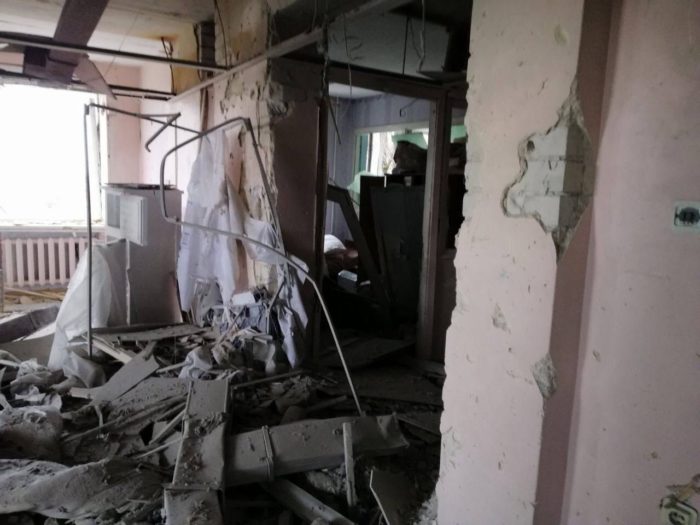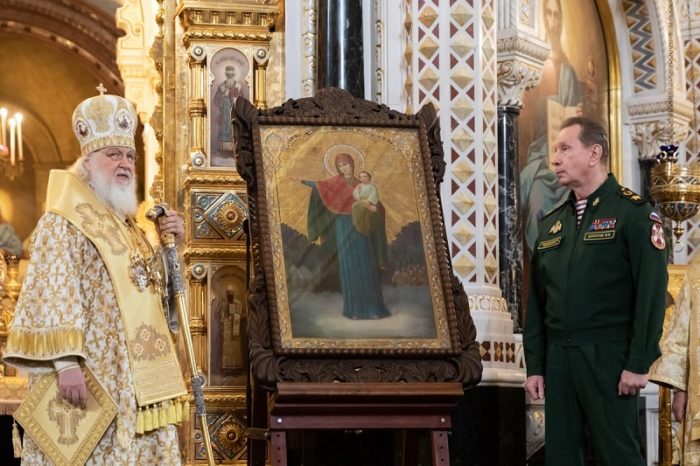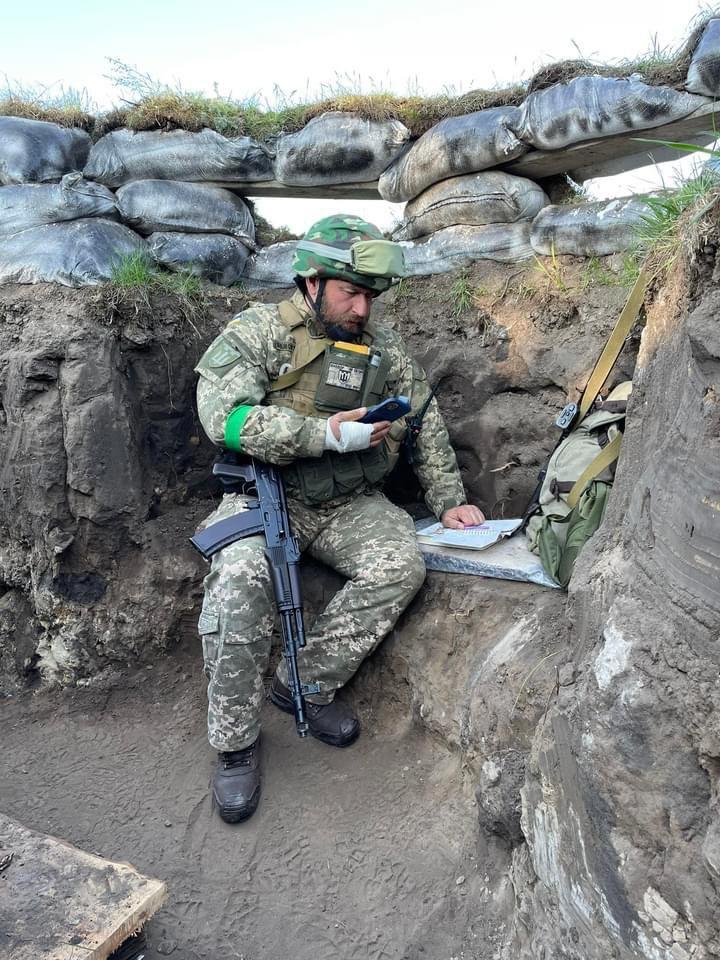Since February 24, we are witnesses of the brutal war started by Putin’s Russia against Ukraine.
This is happening not by accident. For many years political leadership of the Russian Federation has been persistently attacking universal human rights principles and violating the human rights of many people, firstly — of people within Russia.
When many forms of violence and discrimination are being condoned and institutionalized in the country by its authorities, when civil society is silenced with repressions, when hatred against neighboring countries is escalated with lies and conspiracy theories, there is no surprise that this way of ignoring human rights and international law paves the way to brutal attacks against people of neighboring countries and threatens regional and global peace.
This is what was happening in Russian Federation for many years – actually, from 2000 when Putin came to power. Sadly, the international community did not take these dangerous developments seriously. Nowadays we see the effects of turning a blind eye on brutal human rights abuses by the country, which misuses the fact that it (or, rather, its predecessor Soviet Union) was a winner in WWII and the fact that the Russian Federation is a permanent member of the UN Security Council.
During the last days, the global community could observe with anger and despair as Russia’s violations of international law became increasingly more cynical and amounted to war crimes and crimes against humanity.
And among many other crimes, the most threatening was the fact of the rise of military attacks on hospitals and other medical facilities.
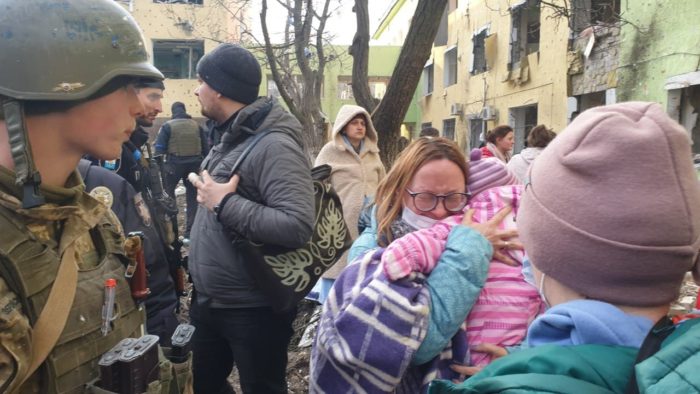
Photo: Polk Azov / Telegram
It is obvious that so many attacks on medical facilities cannot happen by accident. If so, what could be the possible explanation for this brutal „innovation“ of Russia’s „peacekeeping diplomacy“?
Rewind to Syria
We should go back several years and remind ourselves what was happening in Syria in 2015-2016. Putin‘s Russia decided to support the Assad regime in Syria. One of the ways Putin was helping his friend Assad was to launch heavy attacks from air on hospitals and medical facilities in certain parts of Syria.
I was at that time the UN Special Rapporteur on the right to health. With other independent experts – UN Special procedures mandate holders — I was doing my best to draw the attention of the global community to these atrocities. I can refer to some of my statements from that time, From these statements, if you read them, you may have the feeling of deja vu.
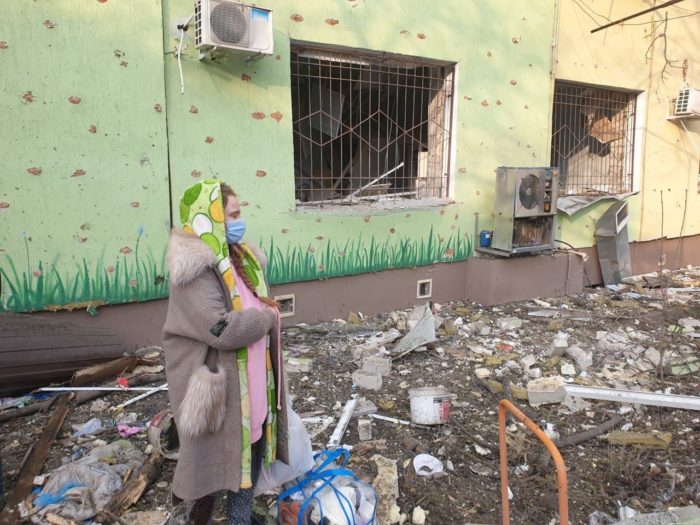
Photo: Polk Azov / Telegram
So what kind of idea is behind this terrible idea to destroy hospitals by just bombarding them?
One of the explanations is that this barbaric decision is the most effective way to force the local population to flee. People are resilient and they use to stay in their native communities – cities and villages, even when they suffer from very serious hardships. They may face serious shortcomings of food, water, housing, electricity, but still, they will stay and do their best to survive and raise their children.
However, when people see that there is no medical infrastructure around, when you cannot reach any doctor or nurse, when you know that all hospitals and outpatient medical facilities stopped working, especially when they have been destroyed – then people decide that they will not survive if the stay. And with pain in their hearts, they leave their home and their motherland and they turn into refugees.
Russian troops fired at the Mykolayiv oncology hospital.–Oblast Health Head, 23 EET https://t.co/aEU2snW9pj
Russian shells in Mykolayiv hit residential buildings, boiler room, parking lot. Fire broke out in a cafe and a car fire was also reported,21:30 EET https://t.co/qJjNs6fhId pic.twitter.com/TbADdJApyZ— Euromaidan Press (@EuromaidanPress) March 11, 2022
These tactics were used in Syria by the Russian army supporting the Assad regime, in a very intensive, extremely brutal, and well-documented way. Sadly, international pressure was not effective then, also because the UN mechanisms were paralyzed. And they were paralyzed to large extent because of the very strong influence of Russian diplomacy on UN decisions.
At that time, it was very painful for us as independent human rights experts to observe the reality, which was, just to illustrate, that in the UN system it was even not possible to name Russian Federation as the aggressor.
One more important issue that is important to know, is the so-called New York-Geneva gap. Russian Federation has used its influence to create the situation when one of the crucial pillars – human rights, was systematically undermined by the UN system as if human rights are not that important anymore.
According to Russia, the more important pillars are
- a) development and especially –
- b) peace and security.
This kind of false hierarchy of pillars has been always highlighted by Russian diplomacy and backed by some other authoritarian regimes. On behalf of Special procedures we, independent experts were urging the Security Council to seriously address human rights issues to prevent military conflicts and wars. But our letters were ignored, with the idea behind that human rights issues are not serious enough for New York, and so they could be managed in Geneva, without bothering the UN New York office.
Mothers and children with hard diagnoses in the bomb shelter in the basement of the Kyiv Ohmadit Hospital – The largest children's hospital in Ukraine. Video by Donbas Frontliner pic.twitter.com/F4ZdJFWlTN
— Euromaidan Press (@EuromaidanPress) March 6, 2022
In 2018, the then UN High Commissioner for Human Rights Zeid Raad al Hussein traveled from Geneva to New York to report to the UN Security Council on human rights abuses in Syria. He was ready to present his report, but this never happened. Just before his presentation of the report, Russia managed to arrange a procedural vote, and after working in the style of diplomacy of this country with some other states, the decision was that this issue does not deserve and will not be discussed in the Security Council.
The message to the UN High Commisioner for Human Rights, to the rest of the UN system and to the rest of the world was very clear. Those who are interested in human rights, may play this game in their „sandbox“ in Geneva, while the UN New York building is about working on peace, and Russia will be in charge of deciding how to protect and promote peace.
These are just some examples, to illustrate how the UN system was paralyzed. Today we see terrible effects of undermining human rights issues and of one country misusing its role of permanent member of the UN Security Council.
Obviously, it is high time for international community to make serious decisions.
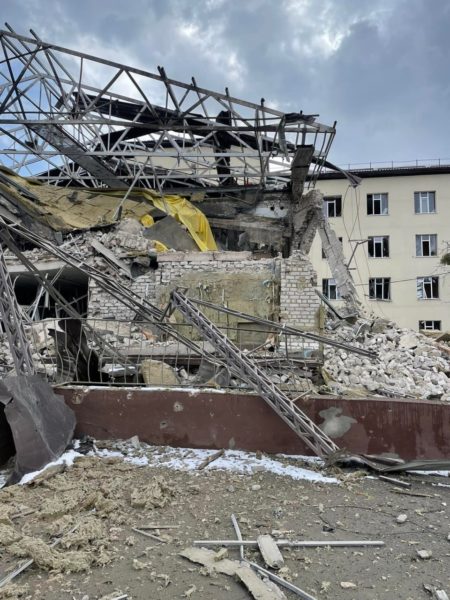
So far the only difference today is that Russian Federation now is officially recognized by the international community as the aggressor and that Ukraine is invaded by Russian occupying forces. However, just recently, when foreign ministers of Ukraine and Russia met in Antalya some days ago, one of messages from Lavrov was that Russia did not invade Ukraine.
This is just to say that Russia will increasingly use cynical methods which its neighbors know very well from the tragic past (Finland, Estonia, Latvia, Lithuania, Poland, Czechoslovakia, Hungary, Ukraine, Moldova, Hungary, and other countries). Russia simply ignores international law and universal human rights principles.
On March 2 Russia continued shelling of Zaporizhia hospital, started on March 1,–as Zaporizhia Oblast Administration informs at 15:40 EET
Three people died from the injuries and four were seriously injured.
Hospital staff continues to provide medical carehttps://t.co/cOiwYyq7Sb pic.twitter.com/ejiVTLzyDo— Euromaidan Press (@EuromaidanPress) March 3, 2022
Our allies in the free world – the European Union, USA, Canada, and many other countries – now, after the unprovoked launch of Russia’s war against Ukraine – have finally recognized the fact that neighbors of Russia have been signaling for many years.
This fact is that Putin‘s Russia is a very serious threat to peace and security in Europe and worldwide. And that Ukraine is now defending entire Europe and the rest of free world.
The Russian Federation has created and effectivel promoted the cynical type of opposing agenda – one of „protection of traditional family values.“ As we know, one of the main goals of invading Ukraine was the so-called defense of traditional values.
This is another example of the hypocricy of Putin‘s regime – when so called liberators are killing civilians, including children and pretending that they are the moral leaders of the modern world.
A woman from Sievierodonetsk and her twins were injured in the recent shelling.–Luhansk Oblast Head, 11:20 EET:
“Doctors are working to the limit. There was also shelling on the Sievierodonetsk hospital today” https://t.co/j0voCbeIQh pic.twitter.com/Bu0jL2FdLL— Euromaidan Press (@EuromaidanPress) March 12, 2022
Nobody can predict what the next steps of the occupiers will be. Probably even Putin does not know and should be seriously re-thinking strategy and tactics after many failures.
There are many scenarios – how Russian occupying forces will proceed and how Ukraine will resist and how the international community will act. It is of crucial importance, as we observe increasing military attacks on civilian population, including medical facilities, to prevent Syrian scenario.
Today everybody in the world should understand who is the biggest global threat to peace and security, and what methods Putin‘s regime may be using. There should be no place for inpunity any longer. Perpetrators and war criminals need to be finally brought to justice.
It is high time for the decisions by international organizations that military attacks of Russian occupying forces on civilians, killing them, and especially military attacks on hospitals in Ukraine – all this amounts to war crimes and crimes against humanity.

Dainius Pūras is a professor at the Department of Psychiatry, Faculty of Medicine, Vilnius University. He is a director of the Human Rights Monitoring Institute, an NGO based in Vilnius, Lithuania. Dainius Pūras was a member of the UN Committee on the Rights of the Child (2007-2011). In 2014-2020 he served as a UN Special rapporteur on the right to physical and mental health. In 2018-2019 he was chairperson of the Coordination Committee of the UN Special Procedures.
Related:




